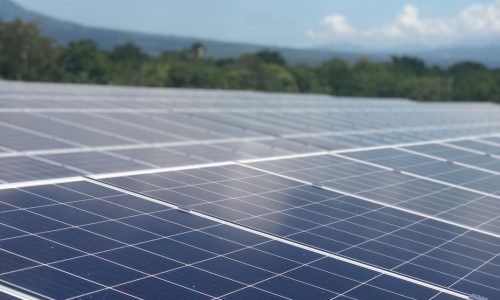The Ministry of Industry has revealed that the realization of investment in the manufacturing sector over the past decade, from 2014 to 2023 under the leadership of President Joko “Jokowi” Widodo, has reached Rp3,031.85 trillion (US$193.9 billion).
Minister of Industry Agus Gumiwang Kartasasmita says that investment trend has fluctuated during the 2014-2023 period. However, there was a surge in investment, from Rp186.79 trillion in 2014 to Rp565.25 trillion in 2023.
“The realization of investment in the non-oil and gas processing industry tends to fluctuate with an increasing trend. This means that investors still see Indonesia as a very attractive and profitable location for their businesses,” Agus said as quoted on Thursday, February 15, 2024.
Despite the pandemic, the manufacturing industry experienced significant investment growth from 2019 to 2023. In detail, investment in the manufacturing sector was Rp213.44 trillion in 2019, rose to Rp259.28 trillion in 2020, further increased to Rp307.58 trillion in 2022, and skyrocketed to Rp457.60 trillion in 2023.
In terms of growth, the most notable increases during the period of 2014-2023 were from 2021 to 2023, reaching 48.77percent. This was followed by growth from 2015 to 2016 at 39.18 percenrt, and from 2014 to 2015 at 24.22 percent.
Agus emphasized that the increase in investment in the manufacturing sector correlates with the government’s policy to drive downstreaming of natural resources, especially in the mining sector. “This means that the government is very consistent that investment realization is not only driven by the service sector, but also because of the prospects of building downstream industries to deepen our manufacturing structure to be more competitive,” he said.
Therefore, the government is committed to continue promoting industrial downstreaming, which will significantly contribute to national revenue through export taxes, royalties, non-tax state revenues (PNBP), and dividends. This is in line with President Jokowi’s direction, who stated that industrial downstreaming is the number one priority. “As an illustration, when we still exported nickel ore, the contribution of nickel commodities was around Rp15 trillion per year. After industrialization, its value jumped sharply to US$20.9 billion or equivalent to Rp360 trillion,” he explained.
Moreover, the increased realization of investment in the manufacturing sector has had a wide-ranging impact on the national economy, including an increase in the number of workers. From 2014 to 2023, the number of workers in the non-oil and gas processing industry tended to increase year by year. In 2014, the number of workers in the manufacturing sector was 15.62 million people, which increased to 19.29 million people in August 2023. Although the number of workers decreased in 2020 due to the pandemic, the industry’s performance rebounded after the pandemic and continued to grow every year, resulting in an increase in the number of jobs.









